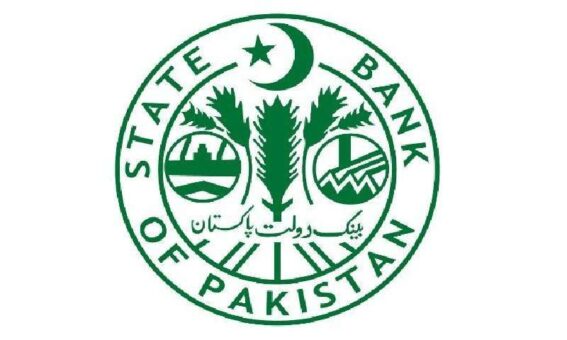Bank borrowing by Private sector in Pakistan has plunged by over 77 per cent during eight and half months of the current fiscal year when compared with the same period of the last fiscal year.
According to official data released by the State Bank of Pakistan (SBP) on Wednesday, commercial banks have extended loans to the private sector to the tune of Rs227 billion during July 1, 2022 to March 18, 2023 as compared with Rs1 trillion in the corresponding period of the last fiscal year.
READ MORE: Pakistani exchange companies demand regulations for cryptocurrencies
The private sector credit off take increased to Rs1.61 trillion in fiscal year 2021/2022 when compared with Rs766 billion in the preceding fiscal year. The fiscal year 2021-2022 had witnessed massive growth in production and other financial and commercial activities, which resulted in about 6 per cent GDP growth.
However, the continuous political uncertainties and financial crisis in the country all the economic indicators are showing adversaries of the situation.
READ MORE: SBP may increase policy rate by another 200 bps to 22%: Poll
Business and industrial activities in Pakistan have witnessed multiple challenges due to economic slowdown, high inflation, massive increase in interest rates and latest increase in taxes. Besides, production activities massively hampered due to restrictions imposed on import of raw materials.
Inflationary pressures can certainly create significant challenges for businesses, especially if they lead to unsustainable cost increases that cannot be passed on to customers.
READ MORE: Foreign investors repatriate profits $225 million from Pakistan despite dollar crunch
In situations like this, it can be helpful for businesses to look for ways to reduce their costs and increase efficiency. This could involve exploring new suppliers, renegotiating contracts, implementing cost-cutting measures, or investing in new technology or processes that can improve productivity.
It may also be helpful for businesses to consider diversifying their markets, either by exploring new international markets or by focusing on domestic customers. This can help to reduce reliance on any single market and make businesses more resilient to economic shocks.
READ MORE: Pakistan defers increase in medicine prices
Businesses may want to consider seeking support from the government or other organizations. This could involve accessing financing or credit support programs, or taking advantage of training or other resources that can help businesses improve their competitiveness and resilience in challenging economic conditions.
In general, it is important for governments to work closely with businesses and other stakeholders in the development of economic policies. This can help to ensure that policies are well-targeted, effective, and take into account the needs and concerns of different groups.
READ MORE: Headline inflation may soar to historic high; further rate hike likely
When businesses are facing challenges, it’s important for the government to listen to their concerns and work collaboratively to identify solutions that can help to support economic growth and job creation. This could involve a range of measures, from reducing regulatory burdens to providing targeted financial support to affected sectors.
It’s also important for governments to take a long-term view when developing economic policies, and to prioritize investments in areas such as education, infrastructure, and innovation that can help to drive long-term economic growth and competitiveness.
Ultimately, successful economic policies require a collaborative effort between the government, businesses, and other stakeholders. By working together, it is possible to develop policies that can help to create a strong and sustainable economy that benefits everyone.
